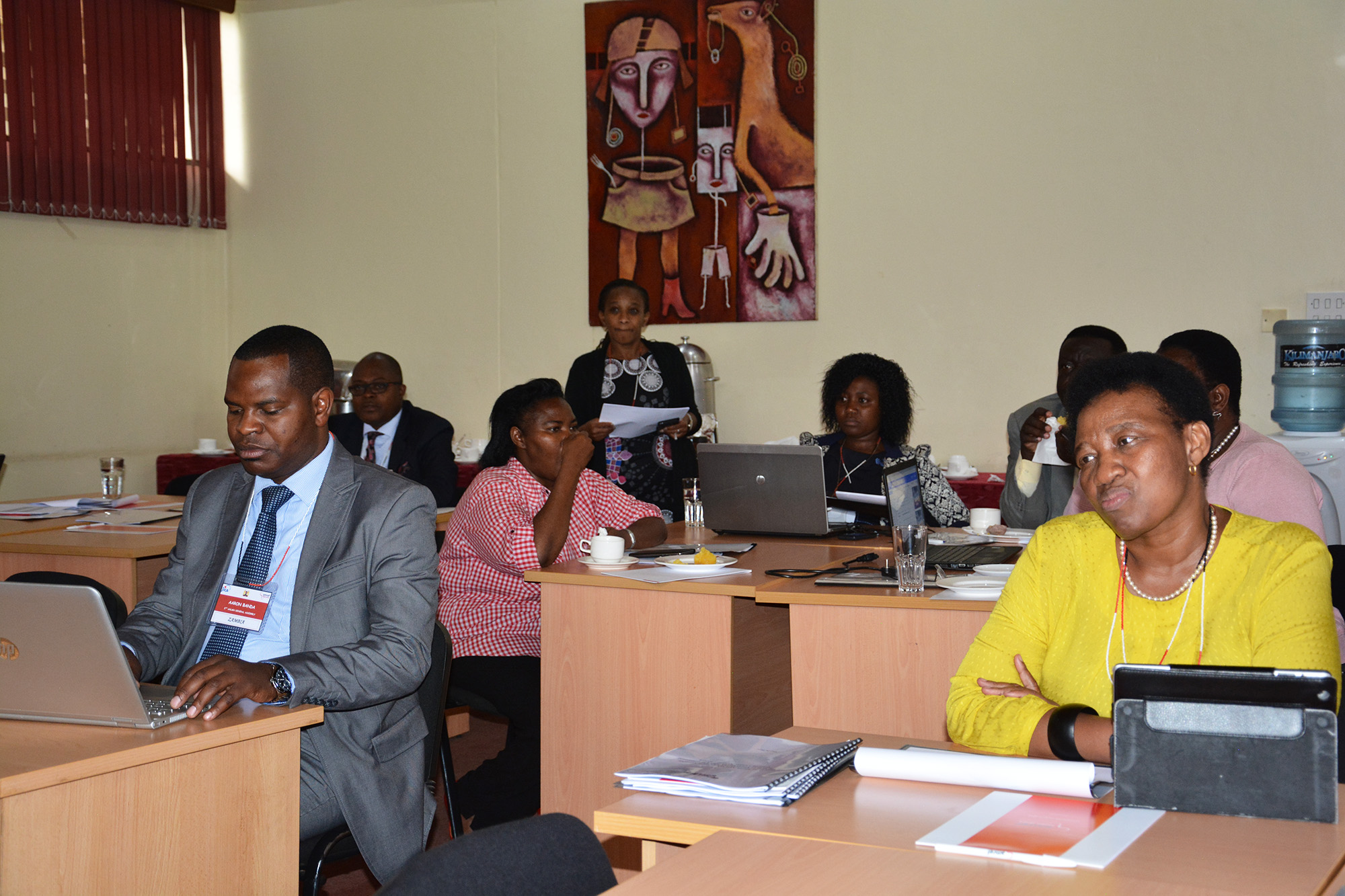The Africa Health Leadership Management Network (AHLMN) held its fifth General Assembly at Amref International University, on its Nairobi campus. Held November 22 – 24, 2017, the assembly attracted 29 delegates from 10 African countries.
The delegates noted the continued support of the AHLMN in the nine years of its existence from Amref Health Africa, Japan International Cooperation Agency (JICA) and the Kenyan Ministry of Health.
The Leadership Management and Governance Academy, which houses the Leadership Management and Governance (LMG), is included within the structure of the new Amref International University (AMIU). Welcoming the delegates to the event, Dr. Peter Ngatia, Vice Chancellor designate of Amref International University, reminded them that great things come from a gathering of great people like the members of the AHLMN and that their commitment and dedication will help LMG grow in Africa. He told the delegates that the Executive Committee of the African Health Leadership and Management Network was delighted to have all participants present and participate in the Assembly, noting that JICA has been the key funder and provider of technical support for AHLMN right from its onset in 2008/2009. This, he said, has proven to be a great collaboration for AHLMN; “Indeed, without JICA, there would have been no AHLMN”.
Discussing the theme of the Assembly, “Building Leadership Management Capacity for Universal Health Coverage”, Dr. Ngatia said that many health agendas are being produced and discussed but one key area is being left out: Leadership and Management. “Unless there are leaders and managers in place within institutions who are making and influencing decisions, and ensuring that the strategic directions are being followed, as well as looking at and measuring the achievements made, then not much will be accomplished over the long-term”. In this regard Dr. Ngatia stressed the need to continually think about leadership and management as that link that makes success possible.
Mr Shinjiro Amameishi, Deputy Head of Mission, JICA Kenya Office, appreciated the long partnership between the Ministry of Health of Kenya and Amref Health Africa for collaborating and making efforts to advance universal health coverage in Africa.
On behalf of JICA, he expressed his sincere appreciation to AHLMN members, their respective institutions, as well as partner agencies for the very productive collaboration they have had in strengthening health systems in sub-Saharan Africa during the last six years. He noted that in “Agenda 2063 – The Africa We Want” African nations have committed to the fulfillment of a number of aspirations, including all citizens having a high standard of living, quality of life, and well-being. There is now a renewed global commitment to health, underpinned by the target 3.8 for Universal Health Coverage (UHC), namely, that by 2030 all people and communities have access to affordable, quality health services.
Mr Shinjiro affirmed that the Japanese government, including JICA, is putting a priority on the promotion of UHC, in particular health systems strengthening in Africa.

In order to achieve UHC, health system strengthening, in particular leadership, management, and governance, is of utmost importance. That is why JICA is promoting this programme together with Amref Health Africa and all members of the AHLMN, he said.
The key agenda of the AHLMN is strengthening leadership, management and governance in the health systems. The key benefit of the AHLMN membership is training in Leadership Management and Governance (LMG), training of trainers for member institutions who can replicate the LMG learning materials for free, and the use of Mednet which is an online meeting point for learners on the AHLMN website.
Aaron Banda, the Registrar General and CEO of Zambia Nursing Council, said he decided to attend the Assembly because he saw the need for a paradigm shift in the way things are done. In his own words, “You can only deliver well when you are well capacitated with knowledge and skills.” According to him, the move by governments to embrace technology, as Zambia has done already, is a big milestone because it offers an opportunity for people to be trained within the shortest time possible while learning from whatever location they choose.
In attendance was also Dr. Macellina Ijadunola, a Medical Doctor and Senior Lecturer from Obafemi Awolowo University in Nigeria. She likes the fact that the LMG programme is an online one and so it is convenient for one to undertake anytime. “I am grateful to Amref Health Africa for inviting me to attend this programme where I am able to network with people from ECOWAS, East Africa and South Africa. I have learnt a lot in this one week, she said.
